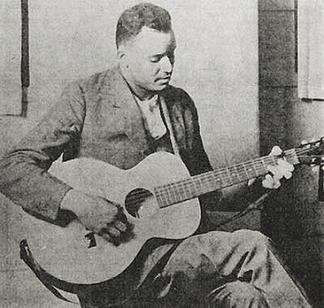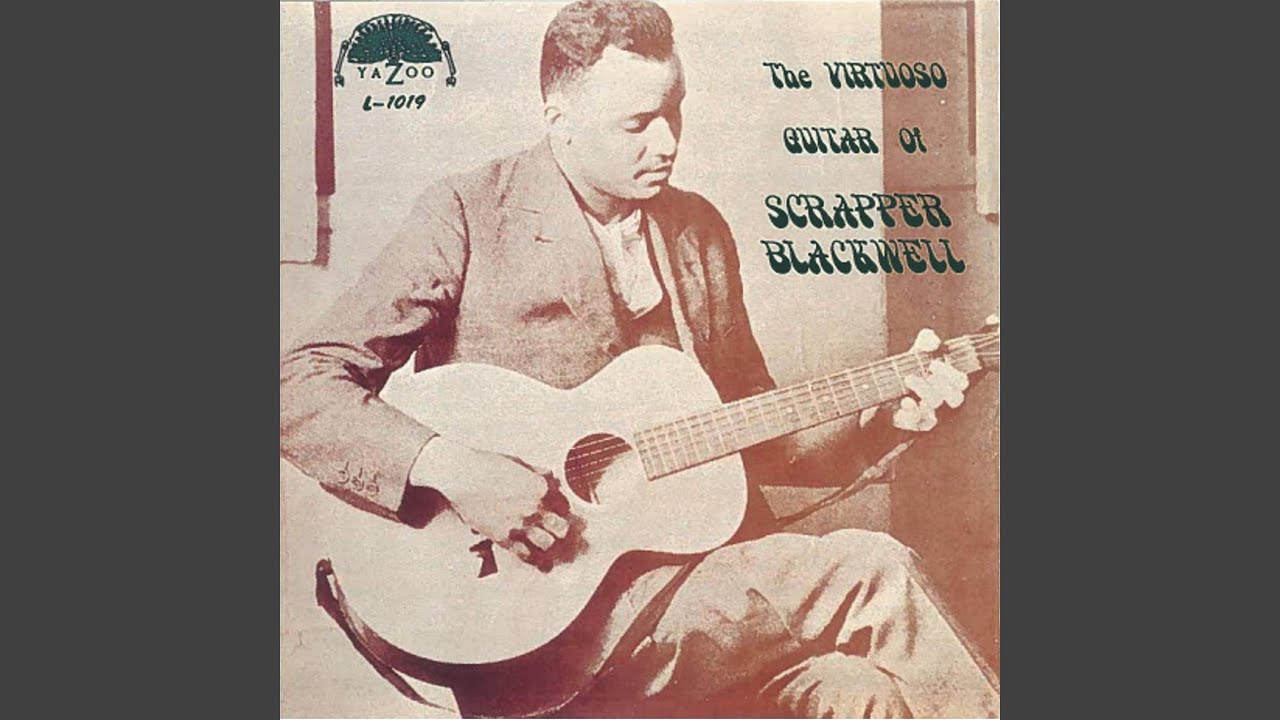Scrapper Blackwell, born Francis Hillman Blackwell in 1903, was a gifted blues guitarist and singer best known for his partnership with pianist Leroy Carr. Together, they helped define the urban blues style of the 1920s and 1930s with a smoother, more melodic approach that paved the way for future blues and jazz musicians. Blackwell’s intricate fingerpicking technique and lyrical phrasing made him a standout figure in the genre, even as he often stayed out of the spotlight. Here are five of his finest songs that showcase his talent and enduring influence.
1. Kokomo Blues (1928)
One of Scrapper Blackwell’s most iconic recordings, Kokomo Blues features his smooth guitar work and laid-back vocal style. The song became highly influential—especially its lyrical refrain “baby, don’t you want to go”—which would later reappear in Sweet Home Chicago, a blues standard. With its relaxed tempo and catchy melody, Kokomo Blues stands as a pivotal moment in early blues history.
2. My Old Pal Blues (1931)
A beautifully melancholic tune, My Old Pal Blues captures the emotional depth that Blackwell could convey through both his voice and guitar. The song reflects on themes of friendship and loss with poetic simplicity. His expressive playing complements the lyrics perfectly, making this one of his most poignant solo efforts.
3. Blues Before Sunrise (1934)
Originally recorded with Leroy Carr, Blues Before Sunrise is one of their most enduring collaborations. The chemistry between Carr’s soulful piano and Blackwell’s masterful guitar makes the track a blues classic. Its haunting mood and lyrics about loneliness and longing before dawn have been covered by numerous artists, including Elmore James and Eric Clapton.
4. No Good Woman Blues (1931)
In this raw and powerful track, Blackwell’s sharp guitar riffs are matched by a defiant vocal performance. No Good Woman Blues is a bitter tale of betrayal and frustration, delivered with gritty authenticity. The song’s rhythmic complexity and emotional intensity reveal Blackwell’s deep connection to the blues tradition, yet also highlight his originality.
5. Trouble Blues (1959)
After a long hiatus, Scrapper Blackwell returned to music in the late 1950s with a series of recordings that proved he had lost none of his touch. Trouble Blues, recorded during this comeback, features a more mature voice and reflective tone. His guitar playing remains intricate and expressive, while the lyrics speak to a lifetime of hardship and resilience. It’s a powerful reminder of his legacy and relevance, even decades after his initial fame.
Final Thoughts
Scrapper Blackwell may not be as widely known as some of his contemporaries, but his influence runs deep in the roots of modern blues. His combination of technical brilliance and emotional expression helped shape the sound of the genre, and his work—especially in collaboration with Leroy Carr—set the stage for generations of musicians. These five songs are a testament to his artistry and serve as an excellent introduction to his essential contributions to the blues.


No responses yet